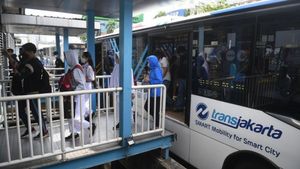JAKARTA - Head of the Central Statistics Agency (BPS) Suhariyanto admitted that the government's ban on going home this year has had a significant impact on the national economy.
According to him, going home is an annual activity that has the potential to increase household consumption.
"When Eid there should be an increase in food and beverage consumption, an increase in the consumption of new clothes, an increase in transportation, and expenses for transport and hotels. But this is likely to be depressed because of the appeal to ban homecoming, "he said in a virtual press conference, Wednesday, May 5.
He added that the elimination of homecoming means limiting spending on transportation, recreation, as well as spending on hotels and transportation. These three components, when added together, will support around 25 percent of household consumption.
Meanwhile, household consumption itself plays a role in 56.9 percent of the formation of Indonesia's gross domestic product (GDP). To note, GDP in the first quarter of 2021 at current prices (ADHB) is IDR 3,969 trillion.
So you can imagine how much economic potential will be lost due to the ban on going home this year. However, Suhariyanto chose to continue to support the government's recommendation that asked the public to refrain from celebrating Eid Al-Fitr 2021 while still limiting mobility in a measured manner.
"But the best choice we can make in the midst of the COVID-19 pandemic is to adhere to government policies in order to prevent the spread of the pandemic," he said.
As previously reported, the government has decided to prohibit citizens from going home from May 6 to May 17, 2021. This step was taken to prevent the increasing number of cases and the spread of COVID-19 amidst large community movements at the same time.
The English, Chinese, Japanese, Arabic, and French versions are automatically generated by the AI. So there may still be inaccuracies in translating, please always see Indonesian as our main language. (system supported by DigitalSiber.id)













